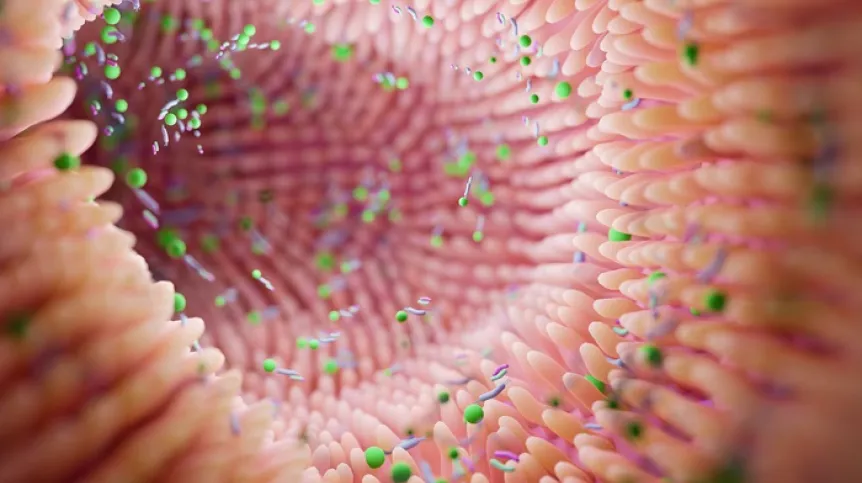
Caring for gut bacteria is key to maintaining proper brain function and lowering the risk of neurodegenerative diseases, research at the Wrocław Medical University shows.
“Many bacteria live in our gut, including Gram-negative bacteria, which contain endotoxins in their cell membranes. For example, when we eat improperly, are stressed, or take certain medications for a long time, intestinal permeability increases. This allows endotoxins to penetrate the brain,” said Professor Beata Sobieszczańska, head of the university’s Department and Institute of Microbiology.
The team found that even very low concentrations of endotoxins affect microglia – cells that regulate neuron function. When microglia malfunction, “the entire brain begins to function abnormally,” Sobieszczańska said.
High-fat meals are one example of a diet that raises intestinal permeability. “This is the result of cytokines, substances secreted by immune system cells, released into the blood in response to endotoxin leaking from the gut, which affect our brain,” Sobieszczańska explained.
Researchers warn that long-term gut permeability can lead to endotoxemia – a chronic inflammatory condition. “People who experience it feel relatively well, but they are truly unhealthy, and unnoticeable disease processes are already taking place in their bodies,” Sobieszczańska said.
The Wrocław team is now studying how endotoxemia influences vascular endothelium, which appears to become more prone to atherosclerotic changes.
“This year, we will focus on studying miRNAs – short stretches of nucleic acids that can modulate the activity of the cell genome… Only such a comprehensive approach will give us a complete picture of the processes occurring in the cell and, consequently, search for effective agents that block these unfavourable mechanisms,” Sobieszczańska said.
Future work will examine oxidative stress, signalling pathways, and exosomes – vesicles that may alter immune function.
Scientists stress that diet is the first step to brain health. “Beneficial gut bacteria love vegetables and fruits, but that doesn’t mean we have to be vegetarians.
However, it’s worth adding vegetables, especially leafy and green ones, to every meal, because they are beneficial not only for the gut but also for the brain,” Sobieszczańska said.
Probiotics found in foods such as kefir and yogurt can support healthy gut flora, but Sobieszczańska cautioned against overusing supplements. “Commercially available products typically contain only 5–6 strains, while the intestinal flora is much more complex, so excessive amounts taken with supplements can dominate and disrupt the balance,” she said.
She added that probiotics are best taken after antibiotic treatment, not during. “Instead of taking probiotic supplements from a pharmacy, it is better to ensure their presence in a healthy diet,” Sobieszczańska said.
(PAP)
PAP - Science in Poland
ros/ zan/
tr. RL













